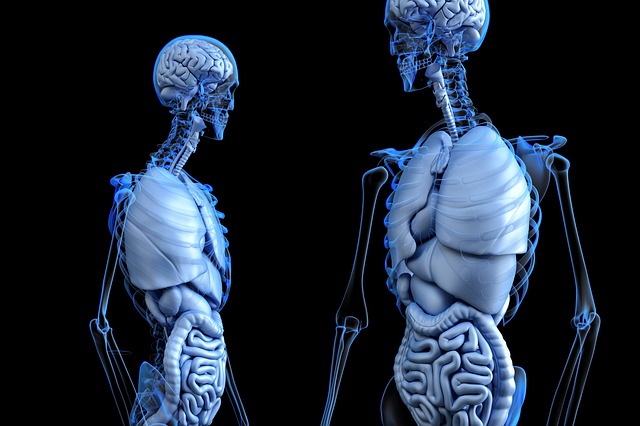The endocannabinoid system (ECS) is a vital regulator of sleep-wake cycles and overall sleep health, crucial for developing treatments for sleep disorders. Disruptions in ECS balance can lead to insomnia or sleep apnea, highlighting the importance of understanding this system for improved sleep quality and well-being. Natural practices like exercise, relaxation techniques, dietary changes (omega-3s, magnesium), and a conducive bedroom environment support ECS function for better sleep regulation. Targeting the ECS offers promising therapeutic avenues for sleep disturbances without psychoactive effects.
Understanding the endocannabinoid system (ECS) is key to unlocking secrets of optimal sleep regulation. This intricate network of receptors, endocannabinoids, and enzymes plays a pivotal role in maintaining balance within our bodies. In this comprehensive guide, we unravel the science behind ECS and its profound effects on sleep quality. From exploring the sleep-wake cycle to delving into common disorders linked to endocannabinoid imbalance, we offer natural strategies for enhancing your rest. Additionally, we examine the latest scientific studies and consider cannabis as a potential tool for sleep regulation.
Unraveling the Role of Endocannabinoids

The endocannabinoid system (ECS) plays a pivotal role in maintaining sleep-wake cycles and overall sleep regulation, making it a fascinating area of study for researchers delving into sleep disorders. Unraveling the intricacies of this complex biological system offers valuable insights into how our bodies naturally control sleep.
Endocannabinoids, or endogenously produced cannabinoids, are neurotransmitters that bind to specific receptors in the brain and body. They modulate various physiological processes, including pain sensation, appetite, mood, and—significantly for our focus—sleep. The ECS is intricately linked to sleep regulation, as it helps maintain a delicate balance between promoting sleepiness and wakefulness. When disruptions occur in this system, it can lead to sleep-related issues. Understanding the endocannabinoid system’s function is essential in exploring potential therapeutic avenues for conditions like insomnia or sleep apnea.
The Sleep-Wake Cycle: A Basic Overview

The sleep-wake cycle, also known as the circadian rhythm, is a natural 24-hour cycle that regulates various physiological processes in our bodies, including when we feel sleepy and when we’re alert. This internal clock is influenced by external cues like light and darkness, helping to synchronize our bodies with the environment. At its core, understanding the sleep-wake cycle involves delving into the intricate workings of the endocannabinoid system (ECS).
The ECS plays a pivotal role in maintaining this delicate balance. It modulates sleep and wakefulness through the interaction of endocannabinoids (eCBs) and their receptors. During daylight hours, eCBs like anandamide and 2-AG promote wakefulness, while at night, their levels decrease, allowing other neurotransmitters to take over and facilitate sleep. This dynamic process ensures our bodies are prepared for rest when darkness falls and alerts us when it’s time to be active during the day, highlighting the profound connection between sleep regulation and our overall health.
Cannabinoid Receptors in the Brain

The endocannabinoid system (ECS) is a complex physiological system that plays a pivotal role in maintaining homeostasis, or balance, within the body. At its core lies the interaction between endogenous cannabinoids (endocannabinoids), cannabinoid receptors, and enzymes responsible for their synthesis and degradation. One of the most studied cannabinoid receptors is CB1, predominantly found in the brain and central nervous system. CB1 receptors modulate various functions, including memory, cognition, and sleep-wake cycles.
Understanding the ECS and its component parts offers valuable insights into sleep regulation. Imbalances or disruptions in this intricate system have been linked to sleep disorders. For instance, CB1 receptor activity influences the release of neurotransmitters that govern sleep, such as GABA (gamma-aminobutyric acid). Research suggests that targeting these receptors could hold therapeutic potential for conditions like insomnia or sleep apnea, highlighting the importance of exploring the endocannabinoid system in the pursuit of better sleep health.
How Endocannabinoids Impact Sleep Quality

The endocannabinoid system (ECS) plays a pivotal role in regulating various physiological processes, including sleep. This complex system is comprised of endocannabinoids, receptors, and enzymes that work together to maintain homeostasis within the body. One of its primary functions is modulating sleep-wake cycles by influencing neurotransmitters and neuromodulators involved in sleep regulation.
Endocannabinoids, such as anandamide (AEA) and 2-arachidonoylglycerol (2-AG), have been found to interact with specific receptors in the brain, notably CB1 and CB2 receptors. These interactions can affect the onset, duration, and quality of sleep. Research suggests that disruptions or imbalances in endocannabinoid signaling may contribute to sleep disorders. Enhancing ECS functionality through certain plant compounds, like cannabis, has shown promise in improving sleep quality for some individuals. Understanding the intricate relationship between the ECS and sleep provides valuable insights into potential therapeutic interventions for better rest and overall well-being.
Common Sleep Disorders and Endocannabinoid Imbalance

Common Sleep disorders, such as insomnia or sleep apnea, often stem from intricate imbalances within the body’s natural systems. Among these, the endocannabinoid system (ECS) plays a crucial role in regulating sleep-wake cycles and overall restfulness. The ECS is responsible for maintaining homeostasis, including controlling insomnia and promoting balanced sleep patterns.
Disruptions to the ECS can lead to endocannabinoid imbalance, which has been linked to various sleep disorders. Endocannabinoids like anandamide and 2-AG help modulate neurotransmitters that influence sleep, such as serotonin and dopamine. When these endocannabinoid levels become unbalanced, it can result in difficulties falling asleep, staying asleep, or experiencing restful sleep, highlighting the importance of understanding the endocannabinoid system for developing effective strategies to combat common sleep disturbances.
Natural Ways to Support Endocannabinoid System

The Endocannabinoid System (ECS) is a complex physiological system that plays a crucial role in maintaining balance and homeostasis within our bodies, including regulating sleep-wake cycles and overall rest-activity patterns. Understanding the ECS can help us appreciate how natural approaches can support this system and, in turn, promote healthier sleep.
There are several natural ways to nurture the ECS, which involves the use of certain nutrients, herbs, and lifestyle modifications. One key method is ensuring a balanced intake of omega-3 fatty acids, as these essential fats are known to interact with the ECS. Incorporating foods rich in omega-3s, such as fish, flaxseeds, and walnuts, into your diet can help support endocannabinoid production. Additionally, certain herbs like lavender and chamomile have been used traditionally for their calming effects, which may indirectly influence the ECS and facilitate better sleep quality. Regular exercise is another powerful tool; physical activity helps regulate endocannabinoids and promotes a healthy sleep-wake cycle. Furthermore, practicing stress management techniques, such as meditation or deep breathing exercises, can positively impact the ECS, leading to improved sleep regulation.
Exploring Cannabis for Sleep Regulation

Cannabis has long been recognized for its potential effects on sleep, but understanding the underlying mechanisms requires a look into the endocannabinoid system (ECS). The ECS is a complex physiological system that plays a crucial role in maintaining homeostasis, including regulating sleep-wake cycles. It consists of endocannabinoids, receptors, and enzymes that work together to modulate various bodily functions.
One of the key components, tetrahydrocannabinol (THC), interacts with CB1 receptors in the brain, influencing areas related to sleep and wakefulness. However, recent research highlights the potential therapeutic benefits of another cannabinoid, cannabidiol (CBD), in sleep regulation. Unlike THC, CBD doesn’t bind directly to CB1 receptors but instead modulates the ECS indirectly, offering a more nuanced approach to addressing sleep disturbances without the psychotropic effects associated with marijuana use.
Scientific Studies on Endocannabinoids and Rest

Scientific studies have shed light on the fascinating relationship between the endocannabinoid system (ECS) and sleep regulation. The ECS, a complex signaling network within our bodies, plays a pivotal role in maintaining homeostasis, including modulating sleep-wake cycles. Research has demonstrated that endocannabinoids, the body’s natural cannabinoids, are involved in regulating insomnia and promoting restorative sleep.
These endocannabinoid molecules, such as anandamide and 2AG, interact with specific receptors in the brain and nervous system to influence sleep stages. Studies have shown promising results in understanding how these substances can be used therapeutically to treat sleep disorders. By targeting the ECS, scientists aim to develop novel treatments that could offer relief to those struggling with insomnia or other sleep-related issues, ultimately enhancing the quality of rest and overall well-being.
Tips for Optimizing Sleep Naturally

Getting a good night’s sleep is essential for overall health, and nature provides us with powerful tools to optimize our rest. One such system is the endocannabinoid system (ECS), which plays a crucial role in regulating sleep-wake cycles and maintaining homeostasis. By understanding and supporting this natural process, you can enhance your sleep quality.
Here are some tips to naturally optimize your sleep: engage in regular physical activity during the day as it promotes a balanced ECS function. Incorporate relaxing activities before bed like meditation or deep breathing exercises to signal to your body that it’s time to wind down. Ensure your bedroom is cool, dark, and quiet—creating an optimal environment for sleep. Additionally, consider incorporating foods rich in omega-3 fatty acids and magnesium into your diet, as they support ECS function and muscle relaxation. These simple practices can help you harness the power of your body’s natural systems for better sleep regulation.
